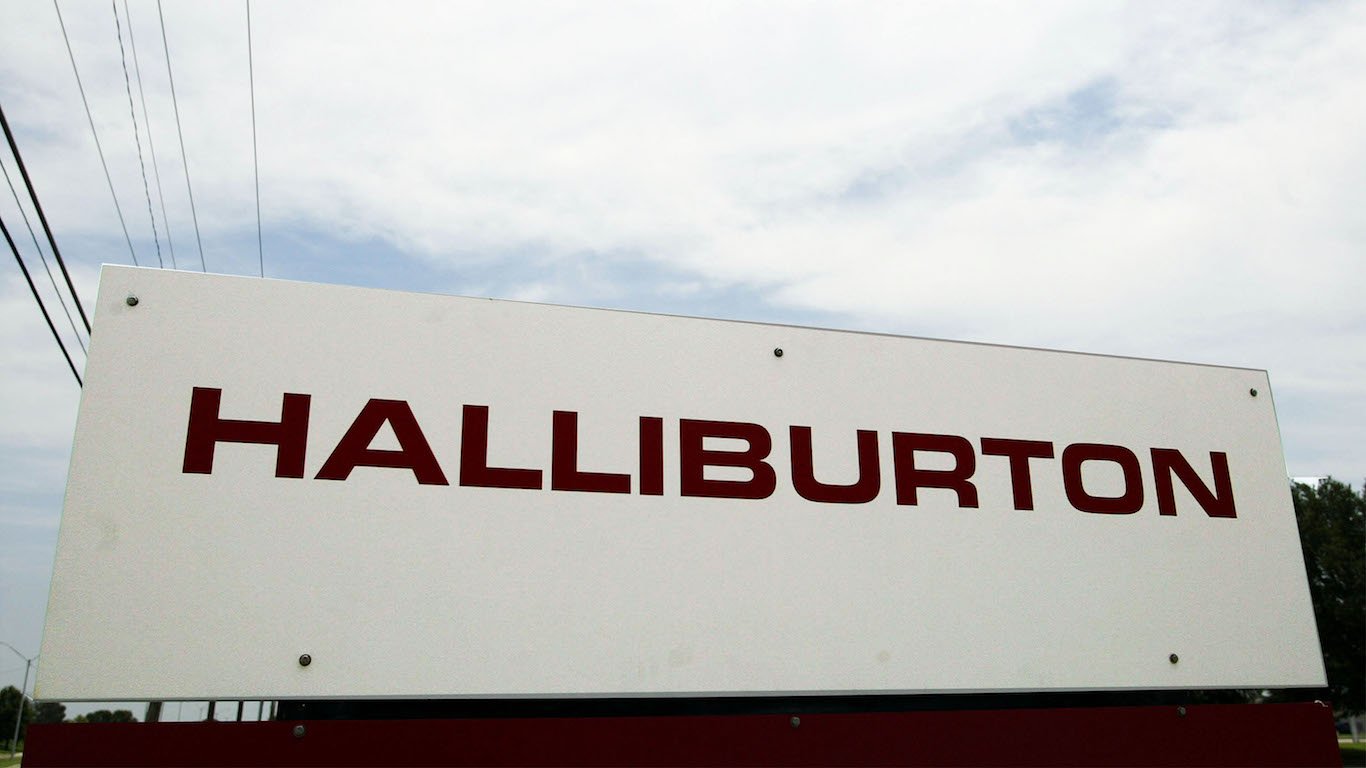

Halliburton Co. (NYSE: HAL) reported third-quarter 2018 results before markets opened Monday. The oil and gas services company posted diluted earnings per share (EPS) of $0.50 on revenues of $6.17 billion. In the same period a year ago, the company reported EPS of $0.42 on revenues of $5.44 billion. Third-quarter results also compare to consensus estimates for EPS of $0.49 per share and $6.13 billion in revenues.
In Halliburton’s second-quarter report, the company posted EPS of $0.58 on revenues of $6.15 billion. In the first quarter, the company took an impairment charge of $265 million on all its remaining investments in Venezuela.
In the latest quarter, North American revenues slipped 2% sequentially but rose 18% year over year. The company attributed the sequential decline primarily to lower pricing for stimulation services in the U.S. land sector and reduced drilling fluids activity in North America. These declines were partially offset by increased activity in the production of chemicals and artificial lift product service lines in the United States land sector.
President Jeff Miller said:
In North America, a combination of offtake capacity constraints and our customers’ budget exhaustion led to less demand than expected for completion services. I believe that these are temporary issues, and that the catalysts for improving demand for services are clearly visible: supportive commodity pricing, expanding offtake capacity, building well inventory, and reloaded customer budgets.
Our international business continues to show signs of a steady recovery, with revenue increasing 5% sequentially, and every international region growing this quarter.
The outlook for global commodity supply and demand dynamics is constructive. … We remain the leader in North America, which we believe is poised for a better 2019, and Halliburton is better positioned than it has ever been for the international recovery
When Miller talks about “reloaded customer budgets” he apparently means capital budgets that will be recharged in the next fiscal year. The company did not provide guidance in its earnings release, but fourth-quarter 2018 consensus estimates call for EPS of $0.49 on revenues of $6.17 billion. For the full 2018 fiscal year, EPS is forecast at $1.98 on revenues of $24.16 billion.
As of the end of September, the U.S. Energy Information Administration (EIA) reported a total of 8,389 drilled but uncompleted wells in the major U.S. shale regions, nearly 900 more than at the end of December 2017. West Texas Intermediate crude oil traded at around $69 a barrel this morning, nearly $11 a barrel more than at the beginning of the year, but down more than $7 a barrel from year-to-date highs posted earlier this month.
The third quarter was no better than lukewarm for Halliburton, and if CEO Miller is right, there are not a lot of positive surprises on the horizon for more exploration and production spending in the current quarter. The oilfield services business is doing better than it was a year or so ago, but it’s still contending with volatile oil prices and, now, higher interest rates that could shut-off some producers’ ability to borrow to pay for more drilling and completions.
Investors bid the share up in Monday’s premarket, adding about 1.6% to trade at $38.15, after closing Friday at $37.54. The stock’s 52-week range is $35.75 to $57.86, and the 12-month consensus price target was $51.36 before this morning’s report.
Essential Tips for Investing: Sponsored
A financial advisor can help you understand the advantages and disadvantages of investment properties. Finding a qualified financial advisor doesn’t have to be hard. SmartAsset’s free tool matches you with up to three financial advisors who serve your area, and you can interview your advisor matches at no cost to decide which one is right for you. If you’re ready to find an advisor who can help you achieve your financial goals, get started now.
Investing in real estate can diversify your portfolio. But expanding your horizons may add additional costs. If you’re an investor looking to minimize expenses, consider checking out online brokerages. They often offer low investment fees, helping you maximize your profit.
Thank you for reading! Have some feedback for us?
Contact the 24/7 Wall St. editorial team.
 24/7 Wall St.
24/7 Wall St.

